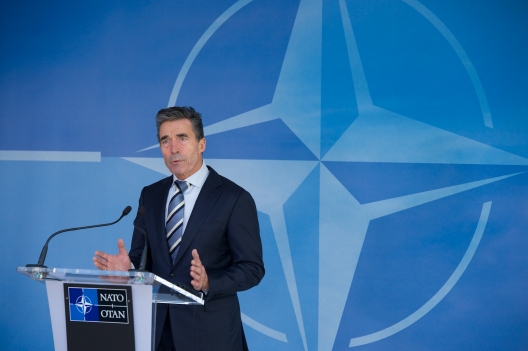 Just weeks before its scheduled September 4 summit in Wales, NATO is bogged down in bureaucratic wrangling and losing important momentum. Without firm intervention and leadership from the White House, the summit is unlikely to provide the far-reaching strategic vision and initiative that is badly needed in the face of Russian President Vladimir Putin’s attempt to destabilize Ukraine.
Just weeks before its scheduled September 4 summit in Wales, NATO is bogged down in bureaucratic wrangling and losing important momentum. Without firm intervention and leadership from the White House, the summit is unlikely to provide the far-reaching strategic vision and initiative that is badly needed in the face of Russian President Vladimir Putin’s attempt to destabilize Ukraine.
To its credit, the Obama administration has pressed its European Allies to do more to reverse the decline of their defense capabilities. Many of Washington’s proposals – including reanimating the goal that alliance members should spend two percent or more of GDP on defense, hold more assertive exercises, make command structure modifications and carry out more realistic contingency planning – are sensible and point the alliance in the right direction. But without a more forceful engagement from President Obama, many of them may never be implemented.
Moreover, there is a real danger that before the summit opens, Putin may succumb to strong nationalist pressures to send Russian regular forces into eastern Ukraine, presenting NATO with another fait accompli on top of its occupation of Crimea. . . .
If Putin continues his proxy war and support for the separatists, the alliance should be prepared to provide Ukraine lethal military assistance, including anti-tank weapons and surface to air missiles, and to deploy intelligence platforms to improve the situational awareness of Ukrainian security forces and military trainers. The alliance should also resume military exercises with Ukraine to help train its armed forces. . . .
Finally, the president should invite key congressional leaders from the House of Representatives and the Senate from both parties to be part of his delegation to the NATO summit. Their participation would underscore bipartisan commitment to the alliance and help make them key stakeholders in programs and initiatives agreed upon in Wales.
F. Stephen Larrabee holds the Distinguished Chair in European Security, Emeritus, at the nonprofit, nonpartisan RAND Corporation and served on the National Security Council staff in the Carter administration. Ian Brzezinski is a resident senior fellow at the Atlantic Council and was Deputy Assistant Secretary of Defense for European and NATO Policy in the administration of George W. Bush. The views expressed are their own.
Image: Secretary General Anders Fogh Rasmussen, March 2, 2014 (photo: NATO)
